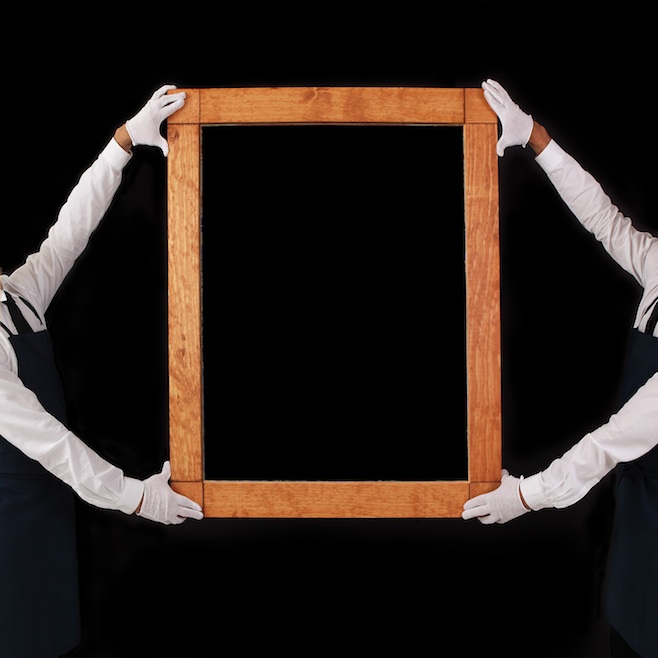Pop music’s recent fetishization by more underground and independent circles of music hasn’t arrived completely without baggage. Nostalgia plays a great role in its adoption, but as much as that word is teetering on expletive and cliché, pop’s more immediate and tangible emotional focus holds a great deal more weight than its place in a culture’s collective memory. Or it should. The messiness comes when you start drawing lines. As we saw just a short time ago, one of pop’s more vocal supporters (in our realm of coverage, anyway), Clare Boucher aka Grimes, found herself in the middle of a (somewhat manufactured on both sides, if we’re being completely honest) controversy for coming out on the side of Beyonce and Psy of “Gangnam Style” fame.
Pop as a force for post-cultural unity is all well and good, but the reality and politics of pop music–even of the most precious, decades old sort–as business versus art seems to get swept under the rug by artists such as Grimes with a relatively minuscule stature equating their own experience and interpretation with said music as its sole function. There’s no easy conclusion to that can of worms. And in an era where indie artists pawning their work off to multinational corporations for television ads is seemingly an accepted practice in the name of “getting by,” it’s especially difficult to parse where those lines should be laid and where the intentions and outcomes of pop music matter.
Yet the more abstract ideas behind the underground’s (for lack of a better term) reappropriation of pop music is often pure and interesting, even virtuous, and Boucher’s experience with Mariah Carey will never be invalid. With Brooklyn artist Arthur Ashin aka Autre Ne Veut’s second LP, Anxiety, arriving on Daniel Lopatin’s Software imprint, there hasn’t been a more resounding statement by an artist of this stature as to what pop music, specifically the sort of radio R&B’s heyday, free of any and all of the term’s connotations, means to a single individual at its purest.
Ashin isn’t the greatest singer, The Weeknd has him beat in the production department (though Ashin is no slouch–more on that below), AlunaGeorge is cooler, and How To Dress Well takes more risks. But Ashin stands well apart from any would be piers simply by virtue of utter brazenness and conviction. He sings with an almost egoless un-self-consciousness–a complete subversion of the norm in its own right–ready to take the world on without an ounce of worry for his own regard. His constant falsetto would be downright comical if his fearlessness wasn’t so pronounced. Despite its bedroom-esque production and blatent DIY-ness, Anxiety actually reaches the one-to-one emotional heights of Ashin’s forebears.
Anxiety‘s second single, “Play By Play,” had an undeniable impact upon its release, even for those unmoved by Autre Ne Veut’s 2010 debut (this writer included). It’s a perfect opener, bringing all of Anxiety‘s pleasures and Ashin’s strengths to bare. Opening with a glossy sprawl of arpeggiated synth tones and untethered percussion, it isn’t a minute until the track is climbing toward its world-arresting hook, Ashin’s shameless tenor shuddering in from all sides. The track peaks maybe three times before its riding out its anthemic mantra of a chorus. All the while Ashin threatens to tip the whole thing over, the world filled with a mixture of adversely subtle and bombastic production details.
The rest of Anxiety plays with a similar balancing act, letting the widescreen synth hooks and booming kick drums ring out loud and clear while the songs remain stuffed with breathless, fuzzy intricacies: the skronking saxophone on “Counting,” the schizophrenic delay manipulation on “Warning,” the chopped up backing vocals on “Gonna Die.” The songwriting has just as many sticky moments too: the full measure rest on “Promises,” the double-tracked chorus on “The Lie,” the diabolical chord change at the end of “Warning,” the climactic backing vocals on “I Wanna Dance With Someone.” The list goes on and on.
Despite the album’s radio pop leanings it never coheres to a linear formula. Ashin wisely broadens the instrumental pallet, adding electric and acoustic guitars (and the aforementioned saxophone) to a cohesive vision of new age-y synths and a synthetic chorus of voices. The singer himself is an active and unpredictable presence in front of each song, and the surrounding production plays a gleefully unstable push-pull game with the vocalist that makes these tracks harder to get your head around than one might assume at first glance. Yet Anxiety never returns to the overt outsider leanings or Ariel Pink-esque detachment of Autre Ne Veut, which is fitting. Despite its often (yup) anxious subject matter, the record is exceedingly inclusive. And for all its frantic energy, unchecked earnestness, and forward-momentum, Anxiety feels tirelessly sculpted, restrained only by its creator’s own limitations, which accurately reflects the personality Ashin portrays in his lyrics.
Anxiety isn’t all hugeness though. The only other track to find the same heights as “Play By Play” is metaphysical lovin’ ode, “Ego Free Sex Free,” which has the most earworm-y chorus on the record. In the record’s back half, you get slow burners like “The Lie,” unfolding like a quiet storm take on Kranky-esque electroacoustics, the upper-atmosphere “Gonna Die,” and the monster closer, “World War,” which plays like a comedown mirror-image of “Play By Play” with it’s cooing, multi-tracked fem-vocal outro. It’s a diverse collection of tracks trumped only by the album’s emotional scale.
Ultimately, when you step back, Anxiety is a record defined by its creator overcoming his own limitations through sheer will power. With so much of the pop music that inspired Ashin comes calculation and compromise as well as the affordability to work without limitations. Anxiety matches the emotional heights and immediacy of the music Ashin was inspired by, but what arrives from his limitations–as a singer, as a DIY-ist–adds to the record a personal foundation and raw authenticity no amount of budget could erect. This is what pop as art looks like.


